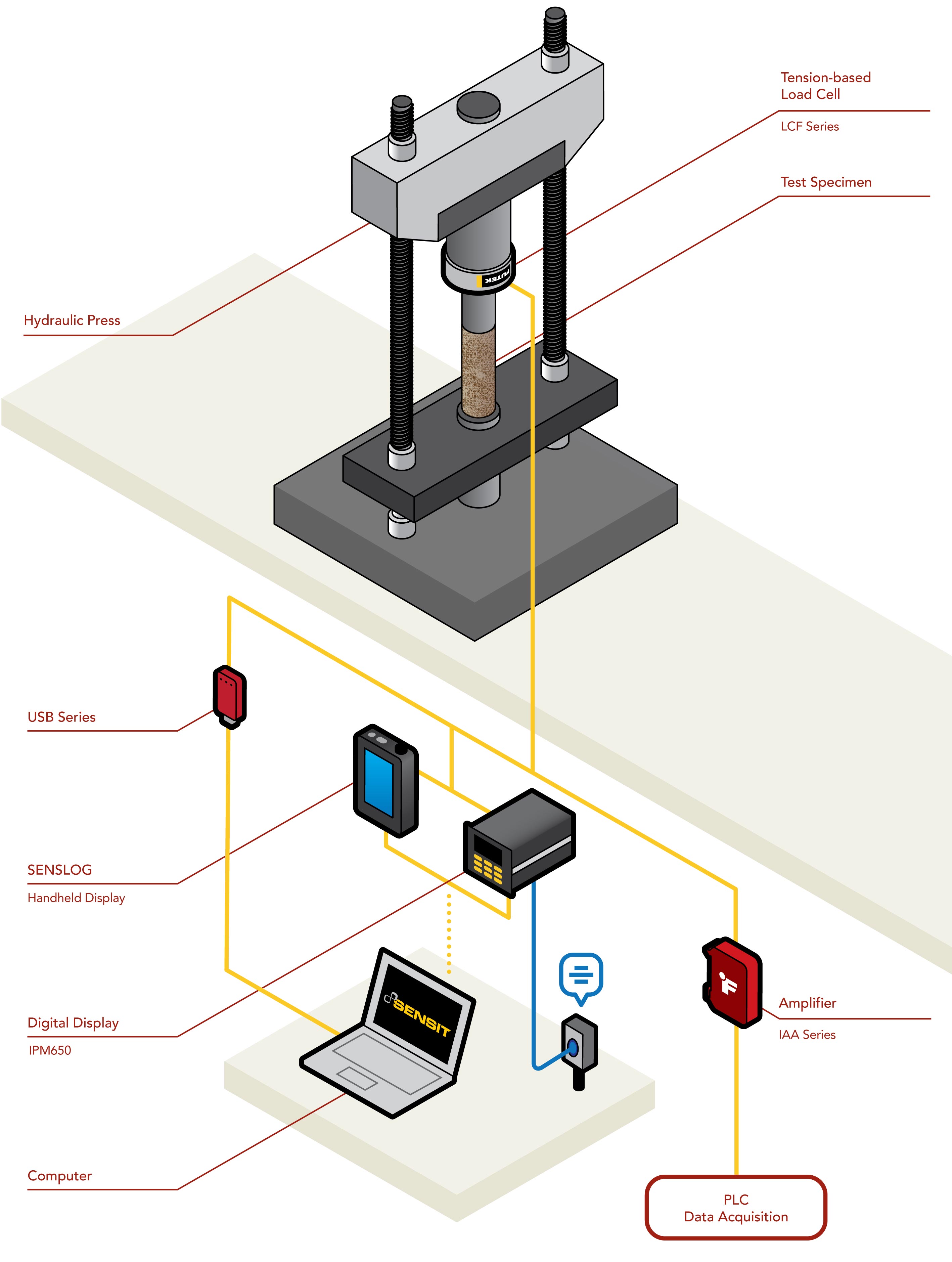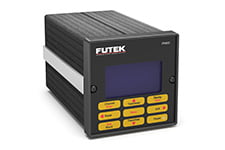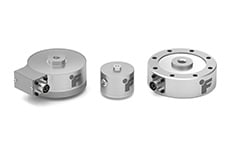Materials testing helps companies and research institutions to obtain valuable knowledge for the development of new products, and the improvement of existing products. Non-destructive and destructive materials testing investigates the mechanical loading of a material up to break or up to a specific specimen deformation.
Material strength testing, using the tensile or tension test method, involves applying an ever-increasing load to a test sample up to the point of failure. The process creates a stress/strain curve showing how the material reacts throughout the tensile test. The data generated during tensile testing is used to determine mechanical properties of materials.
A common material tester is the hydraulic press, which applies different loads onto the test specimen. A precision load cell is connected to the material tester for force and load measurement.
Utilizing a robust, high capacity pancake load cell (LCF Series), industrial operators can measure the force applied to test materials via a hydraulic press (material force testing).
How it Works
Operators have installed a high capacity pancake load cell (LCF Series) into this hydraulic press material test stand.
Intended for tension-based measurements, the load cell will monitor the force applied to the test specimen - in this case a concrete pillar.
As the hydraulic press bears down on the concrete pillar, the LCF Load Cell's measure will be streamed to one of three instruments or amplified to a PLC via FUTEK's IAA Strain Gauge Analog Amplifier.
The LCF Series Load Cell's data can streamed to either of FUTEK's digital displays: the SENSLOG Handheld Display or the IPM650 panel mount display, or it can be streamed directly to the operator's PC via FUTEK's USB Solutions.
Any of these instruments can be paired with FUTEK's SENSIT™ Test and Measurement Software, which can perform data logging, live graphing, and monitoring up to 16 channels.
Products in Use
A Pancake Load Cell (LCF Series) paired with Instrumentation (IAA Series, IPM650, SENSLOG Handheld Display, USB Solutions).
Contact Us
Please Contact Us with questions.
Materials testing helps companies and research institutions to obtain valuable knowledge for the development of new products, and the improvement of existing products. Non-destructive and destructive materials testing investigates the mechanical loading of a material up to break or up to a specific specimen deformation.
Material strength testing, using the tensile or tension test method, involves applying an ever-increasing load to a test sample up to the point of failure. The process creates a stress/strain curve showing how the material reacts throughout the tensile test. The data generated during tensile testing is used to determine mechanical properties of materials.
A common material tester is the hydraulic press, which applies different loads onto the test specimen. A precision load cell is connected to the material tester for force and load measurement.
Utilizing a robust, high capacity pancake load cell (LCF Series), industrial operators can measure the force applied to test materials via a hydraulic press (material force testing).



